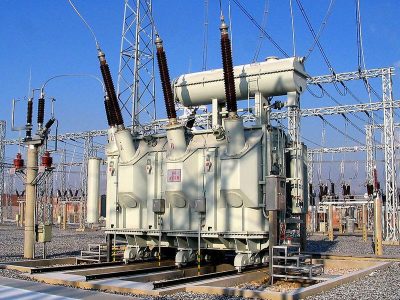Solving Nigeria’s Lingering Power Problem

Before the advent of GSM technology into the Nigerian telecoms sector which brought with it a revolution in the industry, Nigeria had less than 400,000 active telephone lines which were mostly landlines and a few thousand mobile lines across the whole country. Though the prospects of GSM technology was very promising then, no one anticipated that the market will grow to become as big as it has become today.
Even the marketing prospectus of the Nigerian Communications Commission (NCC) which was designed to entice potential investors to invest in the industry had estimated that Nigeria had a market potential of just 10 million mobile subscribers and companies like Vodacom(which was then the biggest GSM operator in Africa) declined the opportunity to invest in the country based on the wrong assumption that the Nigerian market potential was too small.
This was to become Vodacom’s biggest investment mistake as not only did Nigeria exceed all expectations regarding the market size, Nigeria became the fastest growing telecoms market in the world and Vodacom lost their position as the biggest operator in Africa to their arch rival MTN who had taken the “risk” to invest in the Nigerian telecoms sector. From less then 400,000 in 2001, telecoms subscribers in the country grew to be in excess of 150 million subscribers by 2016 translating to a phenomenal growth rate of 30,000% over the fifteen year period.
How was Nigeria able to achieve this feat in the telecoms sector? The simple answer was that the federal government deregulated the sector and allowed private sector operators to profitably invest in the telecoms sector. The assurance of profits encouraged the operators to invest heavily in the sector and through economies of scale, the operators were even able to reduce the cost of connection and tariffs as more and more people subscribed for their services.
The telecoms sector is similar to the power sector as they are both services initially provided by government monopolies. However whilst the telecoms sector has been deregulated and handed over to the private sector for better and more efficient performance, government still continues to hold back the power sector through regulation that inhibits the productivity of the sector.
In reality, there are only two problems holding back the power sector in the country today and they are both politically motivated. If the government can summon up the courage and make policy pronouncements to rectify these problems, without the government investing a kobo, they will set the power sector and by extension the economy on a path of phenomenal growth similar to what was attained in the telecoms sector a few years ago.
The first major problem with the power sector is that, even after the privatization of the industry, government still dictates at what prices the electricity companies can sell the power they distribute and generate. Unfortunately the approved tariffs are far below the operational costs of the power companies and as such they are not able to service their existing bank liabilities talk less of raising funds to finance the necessary expansion that will be needed to solve our power problems.
Government needs to allow the power companies to be reasonably profitable for them to be able to invest in expanding their operations and improve power supply in the country. Once the tariff issue is sorted out, 90% of the problems plaguing the industry will be resolved. Nigerians also need to be ready to pay higher electricity tariffs if we want to enjoy stable power supply in the country.
The other major problem inhibiting the power sector in the country is the national grid system. The national grid system is one that requires most of the power produced in the country to be put on the national grid for re-distribution to various parts of the country. Transmitting electricity over long distances results in loss of power. For instance, as much as 60% of the power transmitted between a distance of Port Harcourt and Kano is lost during the transmission process which results in irrecoverable losses to the generation companies. These loses that power companies are forced to make as a result of the national grid system acts as a major disincentive to investments in the power sector. To solve this problem, we must eliminate the national grid system and allow the power companies to distribute their power as they so desire. i.e we opt for a regional grid system.
The solution to the power problems as enumerated above might sound over simplified but the reality of the matter is that it is all about profits. Profits is that one thing that has the ability to move mountains and if our power sector was made profitable to current and prospective investors, like our telecoms industry, the power sector will attract huge investments that will see power problems becoming a thing of the past in the country. In reality the power sector has the potential to attract over $100 billion worth of investments within the next ten years if only the sector is made profitable enough for it to be viable.
The multiplier effect that this potentially huge investment in the power sector will have on the economy both directly and indirectly is best left imagined. The question now lies with us; Are we ready to pay higher electricity tariffs to reap this benefit and does our government have the political will to implement the policies that will solve the problems and transform the industry into one that will be a catalyst for economic growth.
*Written By Kunle Oshobi
Commentaries and feedback can be sent to: [email protected]

